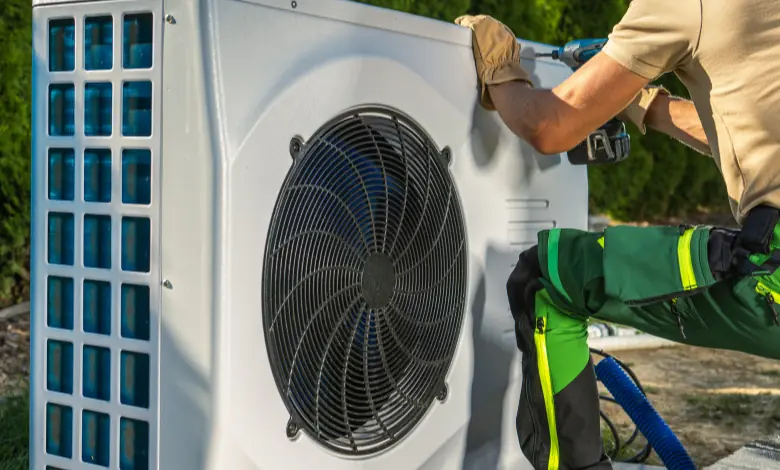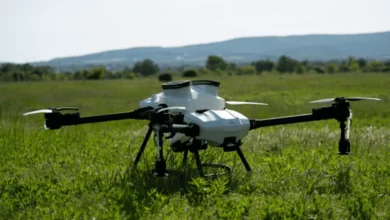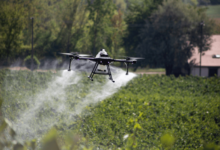Your Guide to HVAC Technology

Innovations in HVAC technology have been steadily improving, from the introduction of smart thermostats to the implementation of energy-efficient HVAC systems, all of which contribute to making our lives more comfortable, cost-effective, and sustainable. This guide will delve into the key trends and technologies shaping the HVAC industry, providing valuable insights for both professionals and enthusiasts alike. Whether you’re considering upgrading your current system or looking to embark on a comprehensive HVAC training program, staying informed about these advancements is essential in navigating the ever-evolving landscape of heating, ventilation, and air conditioning.
1. Smart Thermostats
Smart thermostats have revolutionized how we manage our HVAC systems. These devices, like the Nest Learning Thermostat and the Ecobee, are equipped with sensors and advanced algorithms to optimize temperature settings automatically. They learn your preferences, adapt to your schedule, and even allow remote control via smartphones. This ensures a comfortable living environment and helps save energy costs by reducing heating and cooling when it’s unnecessary.
2. Energy-Efficient HVAC Systems
Energy efficiency is a top priority in modern HVAC technology. Advanced heat pumps, variable-speed compressors, and high-efficiency furnaces are now standard in the industry. These systems can dramatically reduce energy consumption, lowering utility bills and a smaller environmental footprint. If you’re interested in exploring the latest HVAC technology and solutions, visit yoderhvac.com for valuable insights and expert guidance on optimizing your indoor climate control and energy efficiency.
3. Zoning Systems
Zoning systems divide your home into separate climate-controlled areas, each with its thermostat. This technology allows you to heat or cool only the places you use, increasing energy efficiency and personal comfort. With zoning, you can keep your bedroom cool at night while reducing the temperature in unused rooms.
4. Ventilation Solutions
Proper ventilation is essential for maintaining indoor air quality. HVAC systems now incorporate heat recovery ventilators (HRVs) and energy recovery ventilators (ERVs), exchanging stale indoor air with fresh outdoor air while minimizing energy loss. These systems are particularly important for tightly sealed, energy-efficient homes.
5. Geothermal HVAC Systems
Geothermal heat pumps use the Earth’s stable temperature to heat and cool buildings. These systems are highly energy-efficient and environmentally friendly. While they have a higher upfront cost, they offer long-term savings and a reduced carbon footprint.
6. Integration with Home Automation
HVAC systems are increasingly integrated into smart home ecosystems. You can control your heating, cooling, lighting, security, and entertainment through a central hub or smartphone app. This integration makes managing your home’s climate and energy use easier.
7. Predictive Maintenance
Advanced HVAC systems are equipped with diagnostic and predictive maintenance capabilities. They can detect issues before they cause a breakdown and notify homeowners or service technicians. This proactive approach to maintenance helps avoid costly repairs and system failures.
8. Renewable Energy Integration
Combining HVAC systems with renewable energy sources, such as solar panels and wind turbines, has become more accessible. These systems can provide energy for heating and cooling, reducing your reliance on the grid and lowering energy costs.
9. Sustainable Refrigerants
The HVAC industry is shifting towards more environmentally friendly refrigerants. The industry is phasing out hydrofluorocarbons (HFCs) in favor of alternatives like hydrofluoroolefins (HFOs) and natural refrigerants such as carbon dioxide and ammonia.
In conclusion, HVAC technology continually evolves to meet the demands of comfort, energy efficiency, and sustainability. Whether you want to enhance indoor climate control, reduce energy bills, or lower your carbon footprint, the HVAC industry innovations provide many solutions. Staying informed about these technological advancements can help you make informed choices for your home and contribute to a more sustainable future.






